by Farideh Farhi
I have recently returned from a three-month trip to Iran. I arrived in Tehran in early September before the famous Rouhani/Obama phone call and departed last week as the mood was turning more skeptical regarding the potential for some sort of final nuclear deal, which, in the words of Foreign Minister Javad Zarif, would “normalize” the status of Iran’s nuclear program if it were to happen.
Frankly, sitting in Tehran, it was hard to listen to various Obama administration officials’ frenzied explanations to the US Congress and Israeli government regarding how, even with the first-step agreement, Iran will remain in dire straits. It was hard to listen without becoming skeptical about the US political environment allowing an agreement that would also be acceptable to Iran. From the receiving end of all the nuclear chatter, the whole American demeanor on Iran appears imperious, even outright uncivilized; like people speaking calmly about the taking of others’ lives and imposing further economic misery on them as options that are still very much on the table.
As I write this, news has broken that the Iranian experts engaged in talks in Vienna over the first phase of the “Joint Plan” were abruptly recalled to Tehran in reaction to the blacklisting of 19 Iranian companies by the US Treasury Department — a move that both Iran and Russia said violated the “spirit” of the Geneva accord. The spokesperson of Iran’s Foreign Ministry, Marzieh Afkham, in describing the “unconstructive moves” by the Obama Administration, regretted “serious confusion in the approach, decisions, and statements of US officials.”
When I was in Tehran, Iranian officials of various political persuasions were rather soft in their reaction to all the hard talk coming out of Washington. Several officials, including key members of the Parliament, expressed their understanding of the Obama administration’s predicament in trying to sell the Geneva agreement to the US Congress. Talk about continuing pressure on Iran did provide ammunition to folks like Hossein Shariatmadari, the hawkish chief editor of the well-known Iranian daily, Kayhan, but Washington’s verbal assaults were mostly tolerated, even if Foreign Minister Zarif acknowledged that they were making his efforts to maintain support for the agreement difficult. But it appears that the latest Treasury Department move, which followed a rather harsh op-ed in the Wall Street Journal by David Cohen, the Undersecretary for Terrorism and Financial Intelligence, made looking the other way difficult. Lest we forget: Iran also has domestic politics. Unlike its reception in Washington, the Iranian nuclear agreement was mostly greeted positively in Tehran given the general consensus that it’s time to resolve the nuclear imbroglio. But there are limits to what Tehran can ignore.
I am inclined to view this event as an “enough is enough” public statement directed at Congress and aimed at limiting further moves by the Treasury Department. Both the Obama and Rouhani administrations have raised the stakes in the talks high enough to prevent unraveling at this early stage. Nevertheless, the chances of this are quite high, particularly if the Iranian context for the decision to engage in talks in the current manner is misunderstood or willfully misconstrued.
With this in mind, I offer observations from my three-month visit to Iran, where I was mostly in Tehran:
Iran does not look like a sanctioned Country. There are reasons for this. The sanctions regime has targeted production and investment but not consumption. In other words, it has directed its powerful force towards the foundations of Iran’s economy and not its external architecture. There is extensive discussion inside Iran regarding the impact of a dearth of investment, for instance, in Iran’s oil and gas infrastructure. But while everyone worries about deteriorating foundations, the hustle and bustle of the streets and improved amenities (such as no more electricity blackouts) at least partially hides the damage.
Government policies have encouraged consumption as well. The Iranian state, with all its institutional appendages, remains more or less a welfare state, with all sorts of means to provide some support to the population. Gasoline is still cheap, public transportation is decent and heavily subsidized, one can still rely on markets sponsored by municipalities to access cheaper (not cheap) food, and Samsung is everywhere. I went to several cities and neighborhoods during the first 10 days of Moharram, when the martyrdom of Imam Hussein is celebrated. Celebrated is the right word given the carnival-like atmosphere generated by street theaters and ritualized walks of performing groups and an even larger crowd watching them, and large quantities of food distributed freely to the rich and poor in Styrofoam cups and dishes. The political economy of so much food — great food — offered free was as mind-boggling to me as the waste and soiling of the environment by the disposed Styrofoam was depressing.
Finally, Iran’s diversified and complex internal market for goods and services also explains the dizzying number of small businesses that continue to exist despite the harsh economic environment. In Qom, for example, every other shop seemed to be related to car repair. I couldn’t get my head around this until someone explained that as a destination for relatively poor pilgrims who visit with old cars, the repair business makes perfect sense. This explanation also partially addresses Qom’s lower unemployment rate of 7.6 percent in comparison, for instance, to the whopping rate of 15.6 percent in Kohkilouyeh and Boyerahmadi province. (According to the Iran Statistical Center, the lowest unemployment rate of 6 percent is in the West Azerbaijan and Golestan provinces).
This is not to suggest a lack of economic hardship or impact on consumption patterns. People complain about rising prices and youth unemployment all the time — though due to a drop in the pace of inflation in the past few months, complaints have also somewhat slowed. (According to the Central Bank chief, Valiollah Seif, inflation for the Iranian month of Aban — October 21 to November 20 — was only 1 percent). Still, Iran does not look like a sanctioned country. Bazaars are packed with people; restaurants are fairly full at lunch time; stores are full of goods and all kinds of useless things. Really! This observation is not merely about northern Tehran, which is much more affluent, it includes the less privileged southern and southeastern parts of the city too.
At the same time, Iran feels like a country in limbo waiting for direction. The management of the presidential election and stabilization of the Iranian currency to between 20-25 percent above the lowest rial to dollar rate have returned considerable economic and political calm to the country. So has the disappearance of Mahmoud Ahmadinejad’s polarizing language and erratic policies. The Rouhani government’s greatest asset for at least the next couple of years is the dark memories of Ahmadinejad’s last few years. On the political front, one prominent human rights activist told me that while improved political conditions are real, just the mere absence of Ahmadinejad and his “buffoonish language and conduct” is enough to keep him energized and pleased for a while.
On the economic front, however, this calmness is described as a kind of hibernation. People are spending money on food, everyday items, even furniture, and from my point of view, there is grotesque conspicuous consumption on the part of the relatively well-to-do. But there are few major transactions on large assets. Housing prices have reportedly dropped as much as 20 percent (apparently in keeping with the revaluation of rial) but the more prominent economic conduct is reflected in a wait-and-see attitude.
No one is buying or selling, but most folks I spoke to believe that an agreement on the nuclear issue will solidify a new economic direction for the country. Rouhani has made clear that he sees the three wings of his campaign platform — improved economic conditions with an emphasis on the private sector, improved relations with the West, and the de-securitization of the political environment — as closely linked. His quick push for the resolution of the nuclear conflict would not have occurred had someone else been elected and, if successful, will impact the direction of Iran’s economic policy. In the words of Mohammad Quchani, the incisive editor of the reformist Aseman Weekly, Rouhani is not expected to bring about “secular democracy” or pursue “structural transgressions.” But the improvements he promised in economy, foreign policy and citizen rights are the “basis for an inter-linked package and cannot each be approached as a separate agenda.”
Waiting for some hints regarding where the country will be heading makes good economic sense for businesspeople and asset holders. The government has to make tough choices in the coming months, irrespective of the talks’ results. It is true that the Tehran Stock Exchange has risen by almost 130 percent since the beginning of the Iranian year (March 21) but this is in no way reflective of confidence in the country’s economic health.
The previous administration has imposed heavy economic burdens on the government, including massive commitments for the construction of inexpensive Mehr housing and cash subsidies, both funded mostly through the Central Bank’s cash printing machine with severe inflationary consequences. According to deputy Majles speaker Mohammadreza Bahonar, almost a quarter of Iran’s 40 percent inflation was caused by Ahmadinejad’s nationwide Mehr housing project, quite a bit of which remains unfinished.
Even if some financial assets flow into the country from the relaxation of financial sanctions, the government must still develop policies that balance tough austerity measures to counter inflation with spending that at least keeps some of the unfinished projects going in the hope of preventing worsening unemployment and providing people with some of what they were promised. Last week’s en masse resignations of all MPs from Khuzestan and Kordestan in protest to budget cuts of some of the unfinished development projects in their provinces was symbolic but reflective of the kind of pressures and demands that have been generated from 8 years of expansionary budgets. In the words of Massud Nili, a respected Iranian economist who advises Rouhani, “under these circumstances, how could the government tell people that because I want to bring inflation down I have decided to cut these [housing] loans.” Clearly the issue at hand for the new government is not merely reaching agreement over what medicine needs to be provided to the patient, but also the body politic’s social reaction to that medicine.
Among the general public, there is still neither full confidence in Rouhani’s external interlocutors responding positively to his nuclear gambit, nor full trust in the government’s capabilities. And yet, as Nili points out in an interview with Iran newspaper, the “paradoxical” situation is the demand on and expectation from the government to resolve the problem when it is itself among the “weakest” and “most inefficient” institutions of the country and has become more so in the past few years. In these “emergency” situation circumstances, the wait-and-see attitude toward the new team in the government’s driver seat makes sense. But this situation will not persist forever. No matter what happens with the nuclear talks, economic decisions under whatever circumstances Iranians think are there to stay will replace wait-and-see. Even emergencies have a way of becoming routine and adjusted to after a while. Zarif’s time frame of one year for the resolution of the nuclear conflict was issued for a reason. The country will move out of limbo one way or another even if by limping. The question is: in which direction.
The nuclear Agreement is a preference and not an existential necessity. There are folks in Iran — I would say a minority — who are gleefully betting that there won’t be a final agreement because the United States cannot come to terms with Iran’s bottom lines regarding enrichment and the right to be treated like every other member of Nuclear Non-Proliferation Treaty. I also met folks who saw the agreement as a bad deal for Iran. Some genuinely objected to the terms of the agreement and blamed the nuclear negotiators for making mistakes while others from the opposite end of the political spectrum saw this bad deal as a necessity for regime survival. Even though the folks in the latter category dispute the need for Iran’s nuclear program and regard it as a waste of time and resources as well as a dangerous gamble, they regard the support Leader Ali Khamenei has given to nuclear negotiations as a sign of desperation; a drinking from the poison chalice; a submission to an outside power for the sake of his and the regime’s political survival.
Most people I met, however, did not consider a final nuclear agreement as either inevitable or necessary for the survival of the Islamic Republic. They saw it as a preference and as mentioned above, instrumental in shaping the economic and political direction of the country. Reformist friends worried about the impact a failure to reach an agreement will have on tipping the political balance again in favor of those who want a more inwardly oriented Iran that prefers a closed political and cultural environment. Less political folks worried about the continuation of a limping economy unable to address the desires and ambitions of their children.
By presenting a nuclear agreement as a preference, the Rouhani administration has created stakeholders in the pursuit of a “good agreement” and not just any deal. The people I met understood that an agreement that is interpreted as submission domestically will not only worsen Iran’s conflicted domestic politics, it will also ultimately prevent economic re-direction. They understand that a deal which does not address Iran’s bottom lines will not endure and hence are quite pragmatically unwilling to accept just any deal either.
Iran’s more open political environment is solidifying support for the government’s negotiating team and posture. On this issue I relied on my journalist and civil rights activist friends who unanimously announced good riddance to the “dark years,” particularly since the 2009 election. This does not mean that there is an end to harassments, arrests, newspaper bans, or awful things like excessive executions. It simply means that a more open political environment that had all but vanished since 2009 now exists alongside all this again.
I called a prominent reformist upon my arrival. He laughed and asked me whether I thought I was visiting Switzerland since I was using his home phone line. Then he invited me to come over for a visit. Khayan’s Hossein Shariatmadari still refers to former President Mohammad Khatami as the ring-leader of “sedition.” But gone for now are the days when Khatami’s picture and words could not be on any newspapers or magazine. All in all, I found the conversation regarding the state of the country and even sensitive issues such as the nuclear negotiations or the role of the Revolutionary Guards in the economy or politics as quite frank, yet civil. The shouters — definitely now fewer — remain, but the sincere conversation about the state of the economy or what Iran can or should agree to in the nuclear talks is itself producing a calming effect on the country. It has also been relatively successful in keeping the Iranian citizens I met mostly content with their choice to participate in the presidential election. Many saw themselves as instrumental in bringing about change. Moreover, they seemed pleased with their choice of a gradual road to reform; political polarization now seemed quite dangerous in a region full of countries wrecked by extremism, domestic conflicts and external interventions. “Thank you, but no Syria for Iran” was a common refrain. And the most disdainful epithets were reserved for the names of two men who many in the Iranian public now identify with extremism: Mahmoud Ahmadinejad and Bibi Netanyahu!
The call for “moderation” is real and not only coming from the government. The reformist experience during Khatami’s presidency and the 2009 election weighs heavily on everyone’s mind. It’s not only this new administration that wants to avoid past mistakes and laying the path, yet again, for the return of what is openly regarded as the extremism of Ahmadinejad’s second term. Reformists are also cautious and wary of moves that could threaten key stakeholders of the Islamic Republic or be perceived as too hasty or provocative by a population tired of — even bored with — fights at the top.
There is no doubt in my mind that the political calm that currently exists in Iran has been profoundly shaped by the extraordinary events of recent years and the utter failure of major political players from both sides of the spectrum to purge their opponents from the political process. Certain issues continue to weigh heavily on everyone’s mind and conscience, especially the continued detention of key politicians. I cannot even begin to tell you what a conflicted experience it was to join a good number of women activists in giving a raucous welcome to Shahindokht Mollaverdi, the new Vice President for Women and Family Affairs, during a ceremony held in the presidential building on Pasteur Street. These activists from across the political spectrum were very pleased with the appointment of Mollaverdi, an impressive lawyer and formidable promoter of women’s rights, and showed their joy loudly, completely ignoring Islamic decorum by whistling and shouting. The loudness inside the building, however, was a stark contrast to the silence everyone exhibited as we passed Mir Hossein Mousavi and Zahra Rahnavard’s home down the road across from the presidential building. Even the location of this home, enclosed by ugly aluminum barriers, is reflective of the imposing and expectant patience that characterizes the mood of Iran. Rouhani and his team have so far exceeded expectations and proven adept in their respect of this mood at least rhetorically. That mere respect has earned them kudos, but their heavy burdens linger.
Photo Credit: Fars/Farhad Kabarkohian

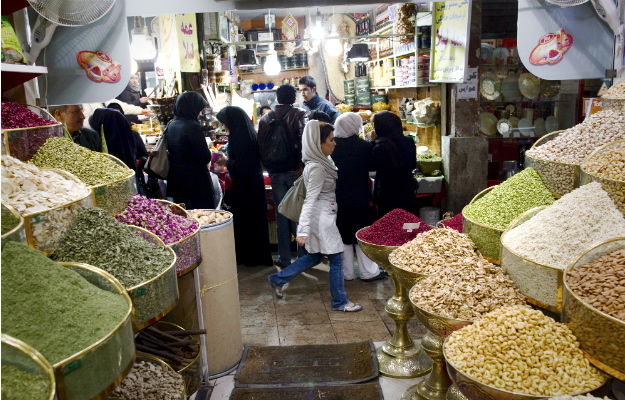
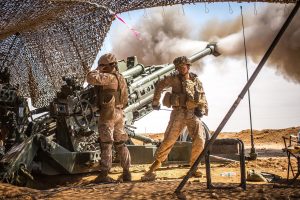
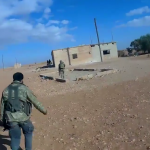
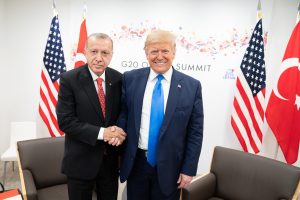
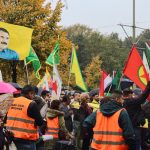
Thank you for this helpful and enlightening article that gives us glimpses of what people are thinking in Iran. I believe it is facile to imagine that some officials in the Obama Administration are pandering to the hardliners because they have no option and wish to stop the Congress from imposing new sanctions by sounding and acting tough. Judging by the remarks and actions of some officials, it is difficult not to conclude that their agenda is to humiliate Iran and force her to surrender, something that no Iranian government would do.
Many hardliners in Iran had said that the West was not negotiating in good faith. Imposing new sanctions only three weeks after reaching the agreement, which at the least is contrary to the spirit of the agreement, cannot be seen as anything but the breach of earlier promises. I believe the Obama Administration must decide whether it is serious about reaching an agreement with Iran, in which case it should stand up to the hawks, or it is just going through the motions, in which case it is playing a dangerous game that will have disastrous consequences. It will push Iran back to the arms of the hardliners and will scupper a great opportunity that has arisen for rapprochement between Iran and the West.
I believe that I read a comment from someone in the past here, that if this rapprochement ends in failure, the sanctions increased, that the Iranians will adjust again, just as they have in the present. I agree with what Farhang writes, especially his last sentence above, which in MHO, would be another stupid move by the Congress is avoiding their oath of office in respect to selling out to the hardliners at home as well as to the Israeli hardliners. It’s too bad that our own members can’t see the “forest from the trees”, so to speak, but then, as the Netanyahoo government has show a total disregard for the human well being of the Palestinians, so too has the Congress with playing the sanctions card. Let’s hope that sanity reigns supreme, not the insanity of more of the same.
Great report. Very welcome indeed.
1-This report fails to convey the suffering of millions of lower working class Iranians who cannot even afford to feed their children let alone go to restaurant as the price of red meat, chicken, rice, eggs, fruits and vegetables have rocketed: the generous food distribution, mainly sponsored by the wealthy and rich bazari as gestures of religious devotion, during 10 day Moharram, is wrong criteria to assess the middle and lower working classes throughout the year, nor can employment/inflation rate reflect the misery of millions of the poor struggling to feed their families and undernourished children. Also, Iranian cities, towns/provinces are not like the north/southeast Tehran! The government subsidy is a meager 45,000 tomans a month where meat is 30,000 tomans a killo, chicken 17,000! But Iran is a big country and thanks to its free trade zones, its homogenous culture of caring and hospitality and its humble patient lower classes who cope with hunger; though for the poor and their malnourished children it is a slow death, let alone millions with life threatening diseases who are dying due to lack of affordable medicine!
2-We are back to 1951 with the American Administration in place of Britain but with the full backing of the UN and UNSC; also as J.J. Mearsheimer and S.M. Walt’s influential The Israel Lobby and US Foreign Policy, 2007 has maintained, the Israel lobby cannot afford to allow any deal between the US and Iran; given the loss of the ‘antisemitism’ momentum Israel desperately needs to preserve this ‘existential threat’ in order to preserve its military ranking and colonial policies and to divert attention from the Palestinian issues. The Obama schizophrenic administration is caught between convincing Iranians that the US is sincere in its dealing with them while under the lobby’s pressure pledging its support for the Zionists who now despite their nuclear arsenal and military resources will be insignificant bully, because their American patron has failed to confront Iran.
3-Apart from hoping the sanctions would lead to internal instability, the Congress also grapple with a national trauma: for the US, having suffered a humiliating defeat in 1975 in Vietnam, the Iranian Revolution and hostage taking on 4 November 1979 were the second worse humiliation before the Soviets, but the traumatized American psyche cannot be cured by inflicting more pain on Iran: it is like the traumatized obstinate Ahab and his vengeful pursing of Moby Dick, because Iran is a proud country. In a way it will be like the execution of Claude Gueux, Victor Hugo’s protagonist: an honest workman murdering his ruthless prison gaoler on 4 November 1831, then being condemned by an ignorant jury, and guillotined. To Hugo this was a “social gangrene”; instead, he advocated: “Make laws suited to the present time”: by looking at the underlying cause; by executing you will achieve nothing. Any insider analyst can observe our contemporary ‘gangrene’: our illegitimate UN and UNSC (with the exclusive ‘right of veto’), now along with a US government under a corrupt vengeful Zionist dominated Congress as the voice of the American People condemning millions of Iranians to suffering. The post 9/11 massacre of Afghans, Iraqis and Pakistanis did not alleviate the traumatized American psyche, nor will the death of the Iranian poor; there will be no genuine peace as long as our ‘gangrene’ remains, as long as the ‘legitimacy’ and ‘authority’ of the UN and UNSC remain worldwide open to dispute.
This is a welcome article and very intelligent comments. Except the fact that the very nature of the Iranian regime has not been addressed at all – the executions, the prisons, the lack of liberty, freedom of press and expression, hatred and fear of Western culture, of liberated dress and behavior – all this is medieval theocratic rule over a people rendered docile by years of fearful governance, with its Basiji and “Republican Guards” and many other so-called “philantropic” organizations,instrumental in the plunder and the rapacity – and enrichment of the ruling class. All in the name of Shia Islam? What has changed since the good old days of the Shah and his retinue?
Iran is a great country, a great people, great culture and traditions – and can, with the right direction, become a world leader. But not through policies of continued corruption and encroachment on pople’s rights and lives. This needs many years yet, but the time will come.
And do stop blaming others, try to purge the excutioners and the thieves – there should be hope for Iran, the one we have loved and remembered.